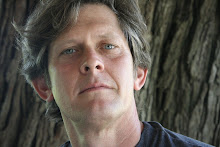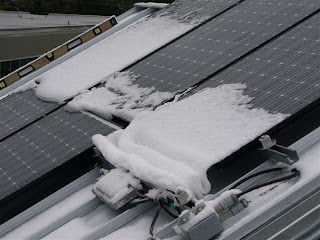This week's newspaper column:
Cool-long nights and holiday festivities remind us that 2008 is coming to an end. The past year – at least for me – seemed to unfold with blurring speed. And now here we are, looking 2009 square in the face.
We have a well-deserved breather from the events of the day as Christmas cheer abounds and families and friends reunite, but soon it will be time to put up the bows and pull out the resolutions.
A lot of things have changed over the past year. An incoming Administration, a new Congress, high gas prices, low gas prices, and a sliding national economy that increasingly seems to have no bottom end – the new year looks much different than last year did going in. This country is at a crossroads, and the future will be shaped by our collective resolve.
So what if we, as a country, made some “green” New Year’s resolutions? If Uncle Sam penned a list, it might go something like this.
Quit smoking.
Currently, we burn fossil fuels to generate most of our energy needs. A phasing out of coal-fired plants and promotion of renewable energies like wind and solar will conserve our natural resources and foster a cleaner environment for everyone.
A nation-wide smart grid – the electrical version of the interstate highway system – can open up the entire country to Saudi Arabia-scale energy production from wind farms in the Midwest and solar energy mega-plants in the Southwest.
And conversion from gas-powered to electric and hydrogen-powered vehicles would radically reduce our burning addiction to oil.
Lose weight.
In sustainable terms, this means “having a smaller carbon footprint.” The single biggest factor influencing the recent record drop in gas prices is the reduction in demand as we drive less. That’s the power of conservation; no amount of increase in the production of oil and gas can compete.
The low-hanging fruit in a national conservation strategy, along with driving less, is the weatherizing of homes and the greening of buildings. Reduction of demand brings the markets back in line while we transform into a green-powered economy.
Spend more time with family and friends.
A national emphasis on promoting the design of walkable neighborhoods with services and work options nearby will increasingly reduce the time it takes us to get from here to there. Sprawl, on the other hand, is a big time hog.
And the culture of rampant consumerism demands that we spend more hours making money to pay for the things we buy. In the 1950’s it took one person working to support a family. Now, on average, it takes about two and a half incomes per household to make ends meet - with not much time to spend around the family dinner table.
We could resolve to spend more time and energy in the pursuit of intrinsic pleasures, rather than chasing the material ones. Did father really know best?












